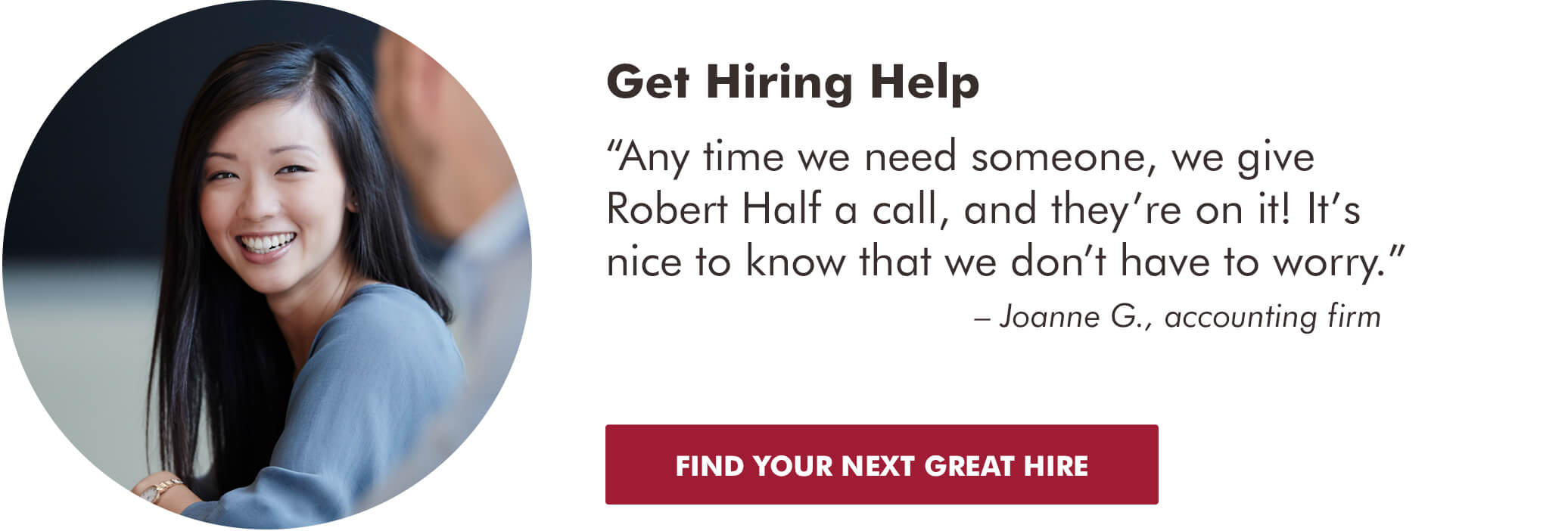4 Types of Job Interview Questions to Help You Dig Deeper
If you want to identify the best candidate for a job, you have to ask the right types of interview questions. And that takes preparation.
You need to evaluate not only the job candidate’s skill sets and experience but also how the interviewee thinks. That requires you to ask more than one type of interview question, using both closed-ended questions and open-ended questions.
Other kinds of queries can produce even more nuanced information to help you with your hiring decision. Here are four types of interview questions employers ask, including when to use them — and pitfalls to avoid.
1. Closed-ended interview questions
This category of job interview questions calls for simple, informational answers. Often, they can be just a “yes” or “no,” but you should give candidates an opportunity to explain themselves. These questions can help you quickly gain basic information about the job seeker.
Here are some sample closed-ended interview questions:
- “How many years did you work for your last employer?”
- “Have you ever worked in a different industry?”
- “What's the longest you've worked for any employer?”
- “Are you comfortable working remotely or in a hybrid environment?”
- “Do you prefer working with a team or independently?”
When to use them: Closed-ended job interview questions work best if you’re trying to elicit specific information or set the stage for more complex questions.
Pitfall to avoid: Asking too many closed-ended questions in rapid-fire succession can make interviewees feel as though they’re being interrogated, especially if you fail to link them back to the job criteria.
2. Open-ended interview questions
Open-ended questions require thought and oblige the job seeker to reveal attitudes or opinions. For example, a behavioral interview question asks the candidate to relate past on-the-job experiences to situations they’re likely to encounter again in the new position.
Here are sample open-ended interview questions employers ask:
- “Can you describe how you handle tight deadlines on the job?”
- “Can you give me an illustration of how you improved productivity at your last job?”
- “Why do you want to work for this company?”
- “What are your methods for avoiding errors?”
- “What are your greatest strengths and weaknesses?”
- “What’s the biggest challenge you’ve ever faced in any job?”
- “What direction do you see your career taking in five years?”
- “What does your ideal job look like?”
- “What could your current company do to be more successful?”
When to use them: Ask these questions frequently throughout the interview, but intersperse them with closed-ended questions.
Pitfall to avoid: If you’re not specific enough when phrasing the question, the applicant’s answer may veer off track, especially if you don’t intercede and provide clarification.
3. Hypothetical interview questions
These job interview questions invite the candidate to resolve an imaginary situation or react to a given situation. Check out these examples:
- “Let’s say a project you supervised didn’t meet the goals you set. How would you respond?”
- “If you noticed a decline in employee morale, what would you do to improve things?”
- “If you were the hiring manager for this position, what skills would you be looking for in a candidate?”
- “Let’s say you were given a generous budget for employee training. What would you spend it on?”
- “If you were asked to improve communications across your previous/current company, what steps would you take?”
- “If you had an opportunity to revise your early career path, what would you do differently?”
- “If you could have anyone in our industry as a mentor, who would you choose and why?"
When to use them: These kinds of questions are most useful when framed in the context of actual job situations.
Pitfall to avoid: Don’t place too much emphasis on the specific answers a candidate gives to hypothetical answers. What you’re really looking for is a glimpse into the interviewee’s approach to solving problems and overcoming obstacles.
Read The Top 15 Interview Questions to Ask Job Candidates.
4. Outside-the-box interview questions
On the surface, these job interview questions could seem bizarre, but they may actually yield revealing answers. Consider these curveball queries:
- “From what you’ve learned about this position, how would you describe it to a 6-year-old?”
- “Who would play the lead role in a movie about your life?”
- “What's the most important thing people don’t understand about you?”
- “If you could be given any superpower, what would you choose?”
- “How would you explain social media to someone who’s been stranded for 30 years on a desert island?”
- “If you could take one trip through time, where would you go?”
- “What's the most difficult problem you’ve ever solved?”
When to use them: Employers have used these types of interview questions to see if the applicant can think outside the box. But most hiring managers should approach them with some caution. You may gain insights into a candidate’s creativity and thought processes. But you might simultaneously seem unprofessional — if not a bit odd — if you don’t handle these job interview questions carefully.
Pitfall to avoid: Don’t overuse this approach. If you decide to ask this type of interview question, do it just once. A series of curveball questions may send your candidate scrambling to end the interview.
Want to learn more? Read our tips on how to conduct a remote interview.
Types of interview questions you should avoid
A final word of caution: There are other categories of job interview questions employers ask, but they are best to avoid entirely.
One type is leading questions, which are those asked in a way that makes the answer you want obvious. If you use these kinds of job interview questions, you’re not likely to get an honest answer — just the answer you want to hear. For example:
- “You know a lot about team building, don’t you?”
- “I bet you’re good at setting long-term goals. Right?”
- “Is this the job that interests you most?”
Another is inappropriate or illegal questions. You can safely assume that questions about race, age, disability, medical information, gender, sexual orientation, marital status, citizenship and religion should be off-limits, based on state and federal law.








